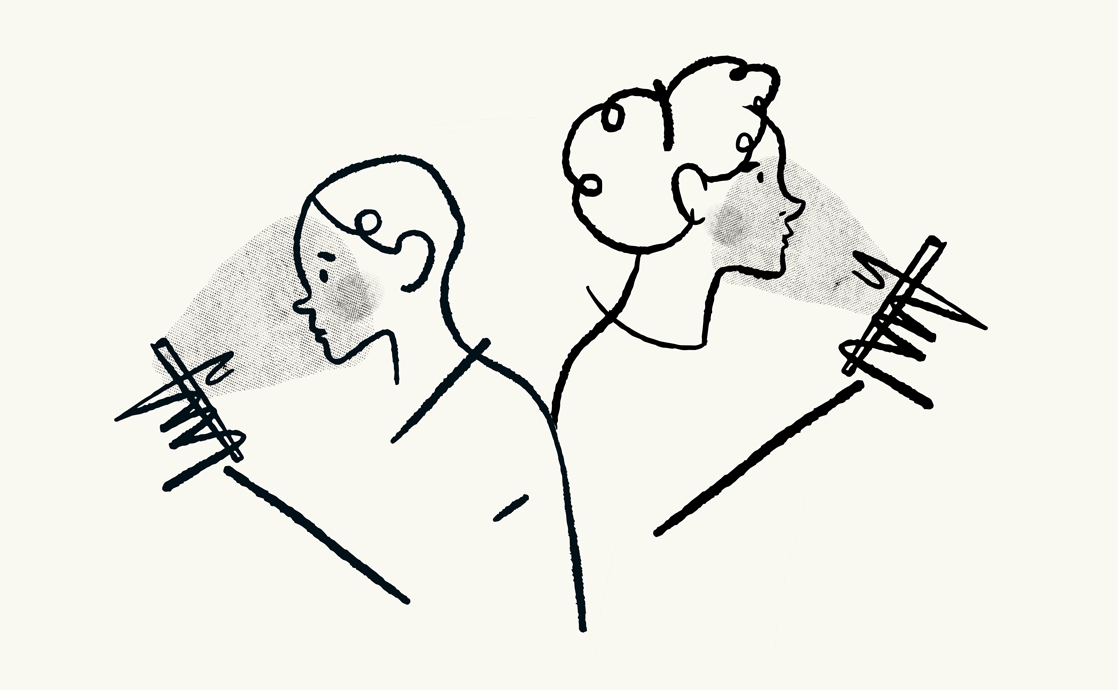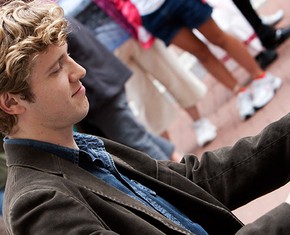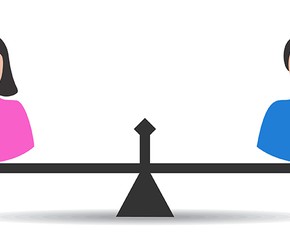The views expressed in our content reflect individual perspectives and do not represent the authoritative views of the Baha'i Faith.
Propaganda, deep fakes, misinformation — we live in a time when deciding what sources to learn from can be a challenge. But along with ensuring we’re not falling for commonplace dishonesty, we also have to consider whether the books, magazines, newspapers, websites, and shows we’re consuming are tainted by another form of disinformation: racism.
Are black people peacefully protesting racial injustice a dangerous mob, or are they standing up for human rights? It usually depends on the viewpoint of a news outlet or reporter. For example, it wasn’t until 2019 that the Associated Press Stylebook said it was acceptable for journalists to describe racist actions as racist. Before that, reporters were instructed only to use euphemisms such as “racially tinged” or “racially charged.”

We can try to use science to systematically understand the world around us and draw conclusions based on a set of observations, outside of the beliefs or anecdotes we have as a culture. But even as science tries to escape bias,we struggle to figure out what science we can trust.
RELATED: Race Unity: It’s In Our DNA
The Baha’i teachings encourage us to think for ourselves and see the world through our own eyes, not the eyes of others. Abdu’l-Baha, the son of Baha’u’llah, the prophet and founder of the Baha’i Faith, explained that the Baha’i teachings emphasize the importance of investigating the truth “so that the world of humanity may be saved from the darkness of imitation and attain to the truth; may tear off and cast away this ragged and outgrown garment of a thousand years ago and may put on the robe woven in the utmost purity and holiness in the loom of reality.”
The notion that we should all form our own view of the world, unaffected by each other’s biases, may sound ideal: but how do we do this? Do I not believe in gravity because I didn’t personally discover it? Do I not believe in the usefulness of a medical procedure because I cannot independently understand the nuances of the procedure? If we were to only believe we could learn through first-hand experience, our understanding of the world would be minimal.
Some people of color don’t trust media outlets to inform us accurately. It’s no wonder that in the 19th century, Baha’u’llah spoke of the importance of trustworthy media grounded in a commitment to humanity’s oneness. He said, “it behooves the writers and editors thereof to be sanctified from the prejudice of egotism and desire, and to be adorned with the ornament of equity and justice.”
Yet journalists surely struggle with this, given that our current age is full of deception, dishonesty, and the exploitation of Black and brown people. There are countless eerie and painful cases: Henrietta Lacks’ cells were stolen, and her suffering was taken advantage of to promote “medical research” without her consent or her family’s compensation; the 40 year-long Tuskegee Study exploited 600 Black men living in poverty, telling them that they were receiving treatment for syphilis when in fact they were used to watch the disease unfold untreated; the founder of modern-day gynecology, J. Marion Sims, performed countless torturous surgical experiments without anesthesia on enslaved Black women like Lucy, Anarcha, Betsey, and many others whose names have been forgotten. And who can forget the Black residents of New Orleans, struggling to survive in the aftermath of Hurricane Katrina, being labeled “looters” by reporters?
How can we trust those who have such a blatant history of exploiting and dehumanizing us?
RELATED: Stopping the Slow, Deadly Drip of Racial Microaggressions
One solution can be found in our education systems. They need to be bolstered up and focused on ensuring Black and brown people of diverse classes, faiths, cultures, and ideologies can contribute to all fields. We need more diversity in the media, government, and public health agencies. The more Black and brown people of all different walks of life receive more power and space to grow in these industries, the easier it will become to investigate truth independently while also relying on the fruits of scientific methods. But the truth about the oneness of humanity doesn’t rub off through proximity in the workplace. It needs to be explicitly taught.
The Baha’i writings say that through education, we can all grow our understanding of the world around us: “A small child cannot comprehend the laws that govern nature, but this is on account of the immature intellect of that child; when he is grown older and has been educated he too will understand the everlasting truths. A child does not grasp the fact that the earth revolves round the sun, but, when his intelligence is awakened, the fact is clear and plain to him.”
Expanding education — and ensuring it includes everyone — enables participation in the generation, application, and diffusion of knowledge. And spiritual education allows us to be more compassionate, just, and truthful in our careers. With those two things, people will eventually be able to fully trust what we read, watch, and hear in the world — and therefore investigate truth with greater precision.
















Comments
Sign in or create an account
Continue with Googleor